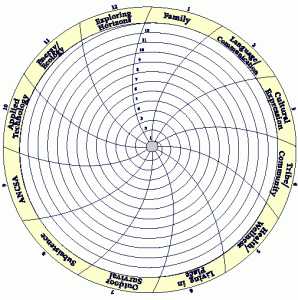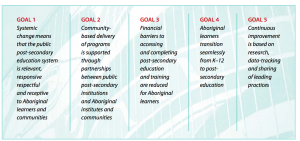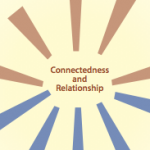In this module’s weblog, I begin to dig deeper for sites that can inform post secondary institutions and educators on how to infuse Indigenous perspectives into their curriculum through best practices and quality resources.
University of Lethbridge FNMI Curriculum Database
https://airtable.com/shrNIbBIx60owZzBh/tbl1m3Zc1tTWu2GLm
I stumbled upon this incredibly comprehensive database of over 1100 FNMI resources for educators. This resource has been curated by educators at the University of Lethbridge and is dedicated to Johnel Tailfeathers, an educator at the U of L and founder of the database. The database was designed for education students and teachers for the purpose of incorporating Indigenous content into their classrooms. The resource spans content areas as well as grade levels and is searchable by many fields. Resources are hyperlinked where available. It is linked off the U of L FNMI Curriculum page found here: http://www.uleth.ca/education/resources/fnmi-collection
Truth and Reconciliation Commission of Canada: Calls to Action
http://www.trc.ca/websites/trcinstitution/File/2015/Findings/Calls_to_Action_English2.pdf
This document has many implications to post-secondary education. It calls for changes to programming and curriculum to provide Indigenous perspectives, protect language, and eliminate inequalities in order to begin the reconciliation after the residential school crisis. Although many of the calls to action are targeted at government, I believe that it is our job as educators to take a proactive approach to meeting these requests and allowing this to inform our practices.
Alaska Native Knowledge Network: Culturally-Based Curriculum Resources
http://ankn.uaf.edu/Resources/course/view.php?id=2
This is another database of curriculum resources. It is from Alaska and includes resources for educators that encompass Indigenous perspectives. Some of these resources are place-based, although many would be useful to any educator. The site notes that it includes a “balanced, comprehensive and culturally-aligned curriculum framework adaptable to local circumstances”. What really caught my eye is that these resources are categorized according to an interactive theme-based curriculum spiral which is used to search. This framework challenges educators to consider not only what they are using as resources, but what values the resources may correspond to.
Ontario Institute for Studies in Education. Deepening Knowledge: Resources for and About Aboriginal Education
http://www.oise.utoronto.ca/deepeningknowledge/
University of Toronto’s “Deepening Knowledge Project” aims to incorporate Indigenous perspectives, histories, and knowledge into Canadian education. This site includes a large database for educators, student resources, and community-based resources. I was interested in the Teacher Resources page which had a huge list of up-to-date and relevant resources such as videos, readings, and lesson plans. What also caught attention was the section on First Nation Representation in the Media which examines how Indigenous are portrayed in media and includes quality media produced and written by Indigenous artist. This site is very applicable to this class and could be used as a resource for our final projects.
Aboriginal Post Secondary Education and Training Policy Framework and Action Plan 2020: Vision for the Future
I couldn’t find a publish date on this particular document but it is still very applicable to my class project as it has a framework and list of recommendations for post-secondary educators with clearly identified targets and milestones through to the year 2020. On pages 12 and 13 are a list of principles and a framework that inform five main goals. These are further broken down into actionable steps and targets for the province. Although this resource is slightly dated, I feel that the principles and goals give a good foundation for post-secondary institutions and educators to consider when envisioning the future.


